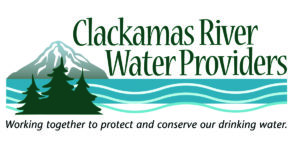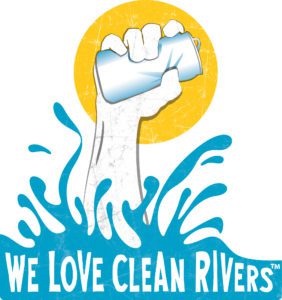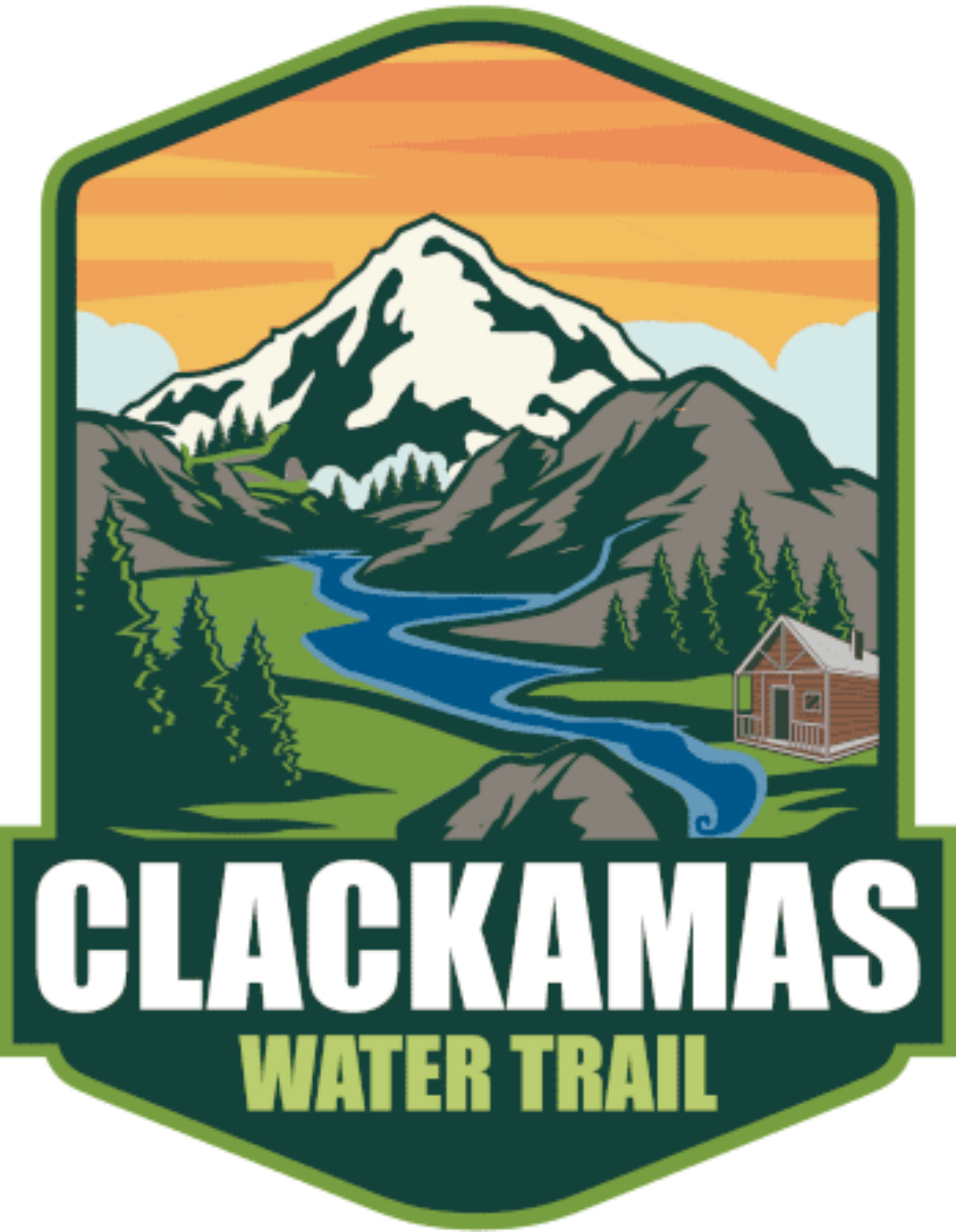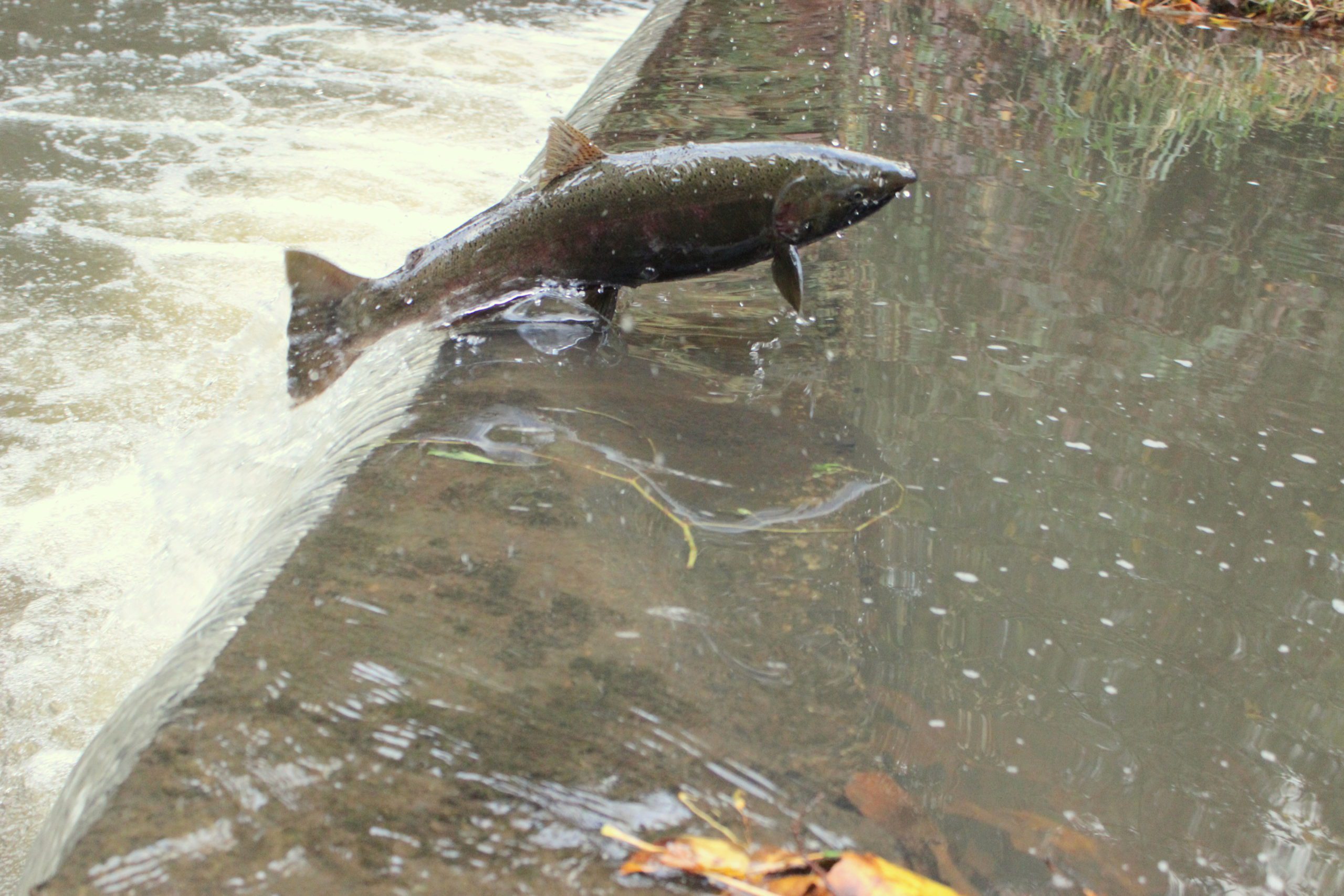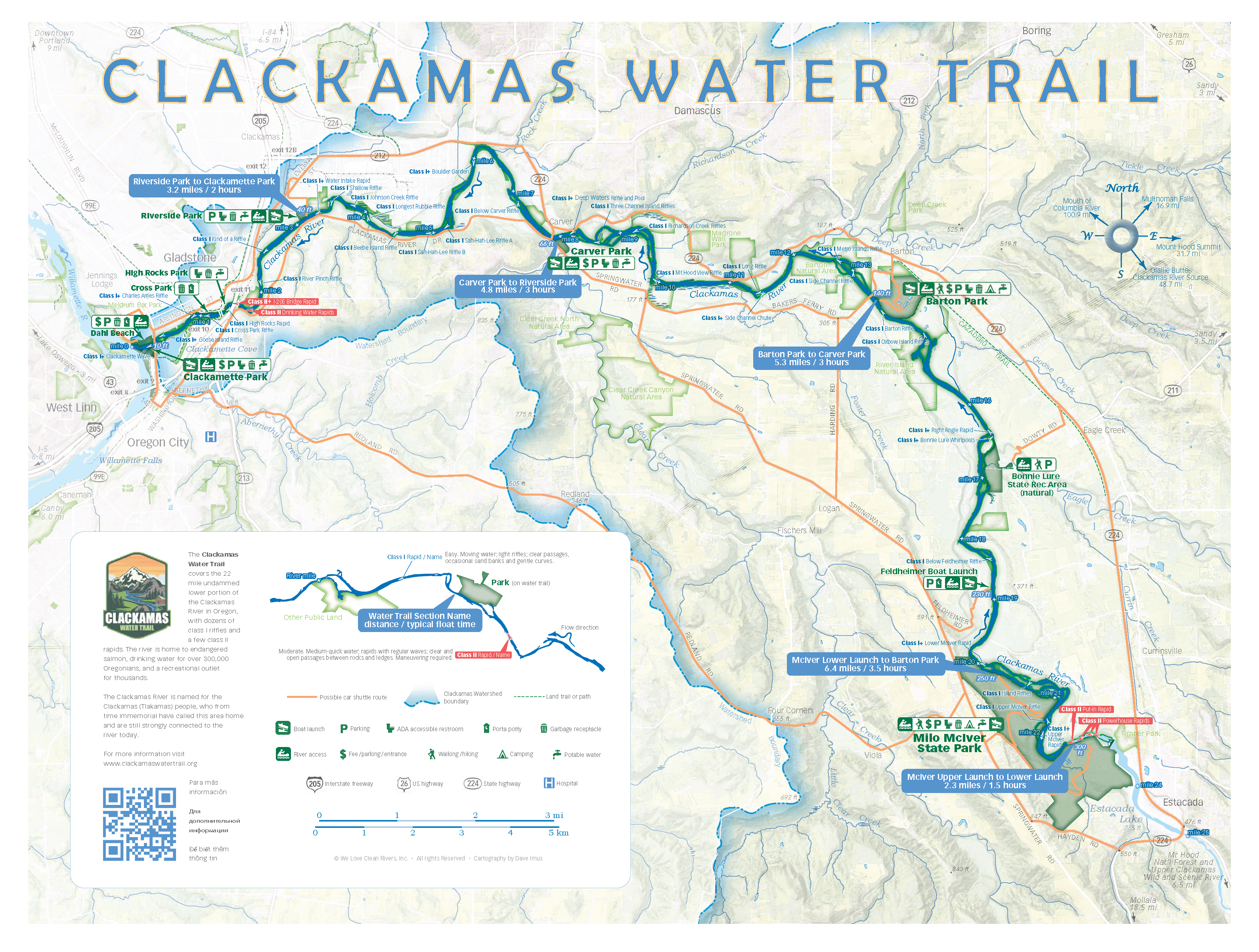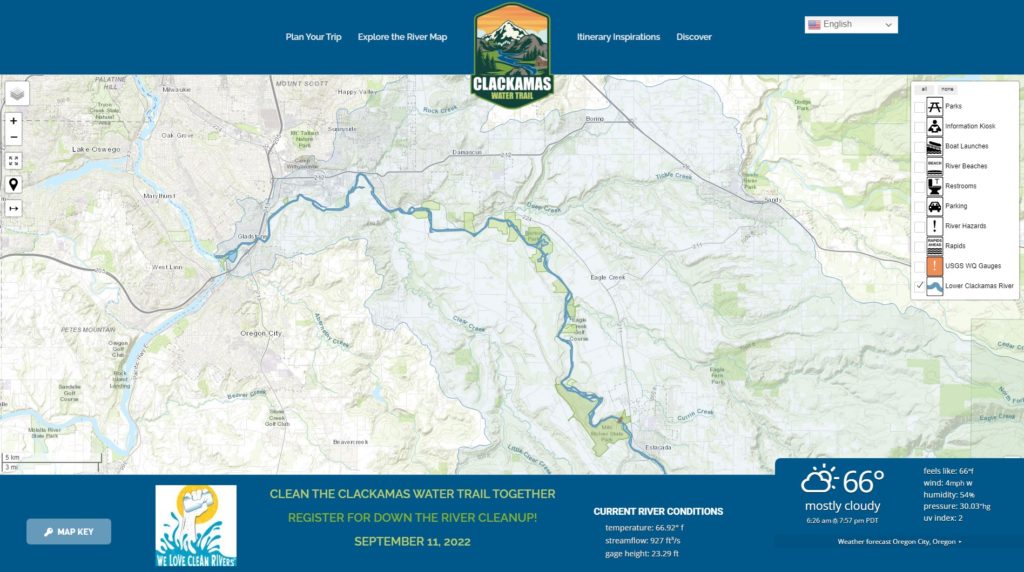
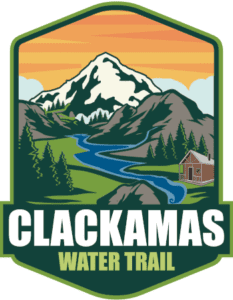 PRESS RELEASE (link to PDF)
PRESS RELEASE (link to PDF)
CLACKAMAS WATER TRAIL Website Supports Low Impact Recreation
CLACKAMAS RIVER, OR – On a busy summer day the five mile float from Barton to Carver Park on the Clackamas River can see as many as 5,000 visitors. Other areas of the river such as High Rocks and Promontory Park also get crowded. The high volume of people on the river has led to stream bank erosion, rampant littering, and other issues that affect water quality.
Cleanups, public outreach, Stash the Trash bags, and improved signage have helped mitigate these problems, but there was no single online place with mapping and stewardship information for a Clackamas River visitor (to float or boat or swim). Through a State Drinking Water Source Protection grant received by the Clackamas River Water Providers and in partnership with We Love Clean Rivers, the ‘Clackamas Water Trail’ website was born. Visit it at www.clackamaswatertrail.org to see how you can enjoy the Clackamas while being a good steward of the river.
The purpose of this new website is to highlight access points, local amenities, and known river conditions and hazards along the lower 22 miles of the Clackamas River. It differentiates private and public property, sensitive fish and wildlife habitat areas that are not to be disturbed, and includes information on how to be good river stewards and protect our drinking water source. The site was designed to be mobile friendly, and can evolve as information changes over time.
For more information about the Clackamas Water Trail website, please contact Kim Swan at (503) 775-6864 or via email at kims@clackamasproviders.org
Clackamas River Water Providers is a coalition of the municipal water providers that get their drinking water from the Clackamas River and who are working together on water resource issues. Member districts provide drinking water to over 300,000 people in Clackamas and Washington Counties, all from the wild and scenic Clackamas River.
We Love Clean Rivers is an Oregon nonprofit focused on community based river stewardship projects. They clean high use rivers by mobilizing the recreation community and provide expertise in sustainable river recreation planning and management.
